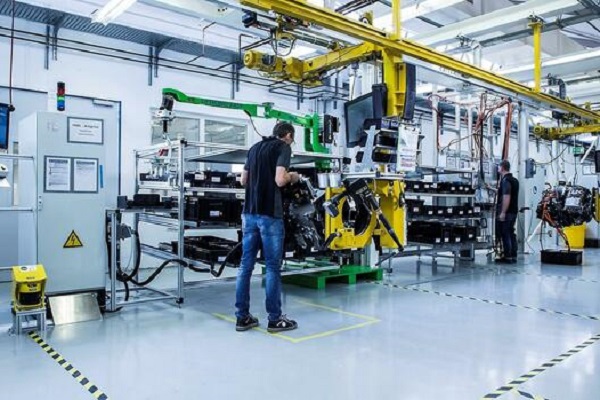
Rolls-Royce, Daimler to develop stationary fuel-cell systems
STUTTGART (Germany), May 27, 2020
Global auto giant Daimler Truck and British technology group Rolls-Royce have signed a co-operation agreement on development of stationary fuel-cell generators as emission-free alternatives to diesel engines, which are currently being used as emergency power generators or to cover peak loads.
The soon-to-be developed CO2-neutral emergency power generators are ideal for safety-critical facilities such as data centers.
A comprehensive cooperation agreement is to be prepared and signed by the end of the year.
In April, Daimler Truck AG and the Volvo Group signed a preliminary, non-binding agreement to establish a new joint venture for the large-scale development, production and commercialization of fuel-cell systems for heavy-duty commercial vehicles and other applications.
The Rolls-Royce Power Systems business unit plans to rely on these fuel-cell systems from the planned joint venture – as well as Daimler’s many years of experience – in the emergency power generators it develops and distributes for data centers under the MTU product and solution brand.
Daimler and Rolls-Royce are linked not only by longstanding cooperation on conventional drive systems for other applications.
Last year, Rolls-Royce Power Systems and Lab1886, Daimler’s innovation unit for new business models, had already agreed on a pilot project to develop a demonstrator for the use of this technology for stationary power supply on the basis of fuel-cell modules from the automotive sector. It will go into operation in Friedrichshafen by the end of this year.
"For Daimler Truck AG, fuel-cell systems play a decisive role in achieving CO2-neutral transport – as a supplement to battery-electric drive. Just at the end of April, we announced our intention to establish a joint venture with the Volvo Group," remarked Martin Daum, Chairman of the Board of Management of Daimler Truck AG and Member of the Board of Management of Daimler AG.
"With the agreement for stationary fuel-cell systems concluded, we are already demonstrating very concrete opportunities for the commercialization of this technology through the joint venture," stated Daum.
"We are delighted that Rolls-Royce is as convinced as we are of the future of fuel cells in the stationary sector and would like to enter into this long-term cooperation with us," he added.
Daum pointed out that on one hand, this represented further impetus for the development of a hydrogen infrastructure across all sectors and applications; while on the other hand, it would enable the duo to jointly work to further increase the economy of fuel cells, as well as society’s acceptance of and confidence in them.
Rolls-Royce Power Systems CEO Andreas Schell said data centres were the nodes of the global information and communication network, whose vital importance had become particularly clear in these difficult times and whose operation must therefore be reliably safeguarded.
"The same applies to other safety-critical systems. Under our MTU brand, we develop customized solutions, thousands of which we have already installed, for data centers’ individual, complex and growing energy needs" he explained.
According to him, the decarbonisation of drive systems and power supply was one of Rolls-Royce's central strategic goals and fuel cells would play a key role in this.
"No other technology offers such high reliability, modular scalability and all the advantages of renewable energies without dependence on the conventional energy market. Through the cooperation with Daimler Trucks, we will gain access to fuel-cell systems that meet our demanding requirements and will thus further strengthen our outstanding position in this growth market," he added.
Daimler Truck AG and the Volvo Group plan to start large-scale production of heavy-duty fuel-cell commercial vehicles for demanding and heavy long-haul applications in the second half of the decade.
However, the fuel-cell systems for stationary applications can be produced in series by the planned joint venture between Daimler Truck AG and the Volvo Group at an earlier stage, as the specific requirements for use in transport on public roads do not apply.
During the past two decades, Daimler has already developed considerable expertise in fuel-cell technology with its site in Nabern, Germany (currently the headquarters of Mercedes-Benz Fuel Cell GmbH) and other production and development facilities in Germany and Canada, said the company in a statement.
In order to enable the joint venture with the Volvo Group, Daimler Trucks is bringing together all of the German group’s fuel-cell activities in a new fuel-cell entity and will be placing them in the planned joint venture. This also includes the allocation of the operations of Mercedes-Benz Fuel Cell GmbH to Daimler Truck AG, it added.-TradeArabia News Service







